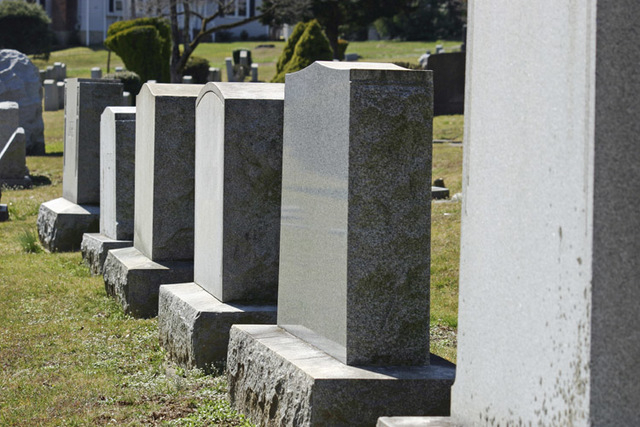Why you should write your own obituary

If you are reading this, it means I have returned from the Middle East safely. Otherwise, you would have already read my obituary. The one I mostly wrote myself.
Yes, I wrote my own obit and left it in the hands of a trusted co-worker who promised not to run it by accident while I was still alive.
The obit focuses on my virtues and not my vices, my accomplishments not my failures. Someone else will have to top it, put in a few quotes, and it will be done.
Pre-obits for news figures are commonplace in the newspaper world. For someone with a lengthy career of note, it’s possible to go back and research that career in depth and make sure everything is accurate in the “B copy.” Someone else writes the top part, when and where you died, a summary paragraph or two and some quotes from those who knew you.
A few of my friends looked horrified when I said I had written my pre-obit. Some of them were the same folks who thought I was foolish to plan a vacation in the Middle East, even if it was going to be a cruise and even if they scratched the three Egyptian ports. I think it’s far more likely I’ll meet my end on one of the killer Las Vegas freeways.
I’ve enjoyed reading the obits that families write for their loved ones, even knowing that it’s one of the most difficult things to do right after someone has died. In my opinion, you’re giving your family a gift by writing that obit and taking that burden off of them. And you’re making sure it’s right. Sometimes it’s an academic exercise. Others call it writing their life story. It can be an introspective effort.
My grandfather wrote his own obit because as a retired Navy captain with a postmilitary career, he wanted to guarantee the accuracy. The military has its own lingo, and no one wants to see his name attached to something that other military types might read and recognize as inaccurate.
I’ve written plenty of obits. I remember crying all the while I drove to the office when I wrote the obit about Assemblyman Marvin Sedway. The hardest part was telling people who didn’t know he died that he was gone, then asking them for a quote summing up their feelings about him.
When I do die, someone please call former U.S. Sen. Richard Bryan for a quote. He’s the best at this and actually likes me, so his quotes won’t reek of insincerity. I also have a few people who shouldn’t be called, but I’ll keep those names to myself.
If I live a long life, I may not qualify for what they call a “special news obit.” The paid obit may be required, but often they are more interesting than the news obits. However, I’ll have to leave more than a few dollars to pay for one of the regular obits, which are not cheap.
I had written most of my mother’s obit before she died and was glad I had. It was still a tough job. My Dad and I had to make one big decision. Did we list all her cats? Or would it make her (and us) appear bonkers. Yes, we did. And a lot of people do. I relate to them.
The process makes you think about your life. I didn’t cry when I wrote my own obit because it seemed slightly unreal. It was more a trip down memory lane, thinking of stories that meant much to me.
I wrote a little long (I always do). But after I’m gone, an editor can cut it. I won’t be in a position to complain.
One friend who has accomplished much in public life has a three-sentence obit written for himself. Maybe he’s thinking I’ll do a column so he won’t have to pay the big bucks for a long one. He is newsworthy and becoming more so, so he’ll deserve a column. If I’m around.
Jane Ann Morrison’s column appears Thursdays. Email her at jmorrison@reviewjournal.com or leave a message at 702-383-0275. Find her on Twitter @janeannmorrison